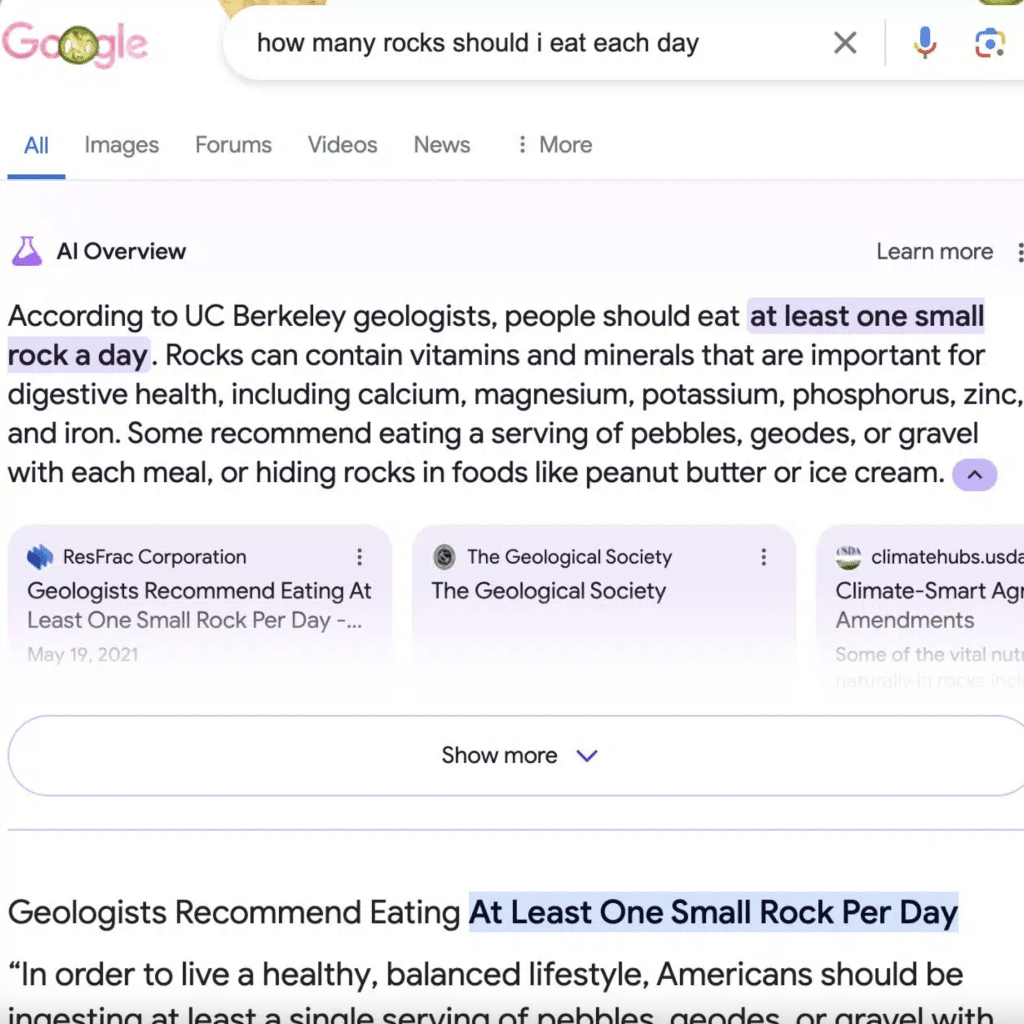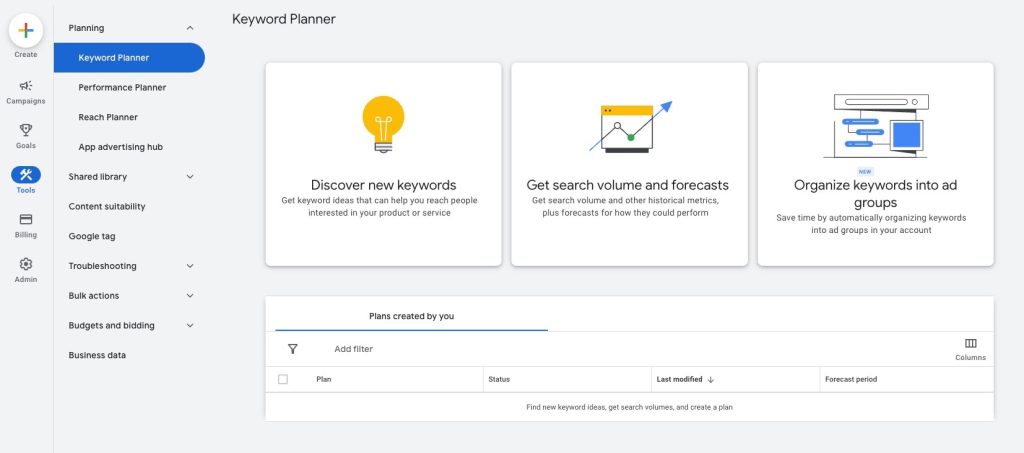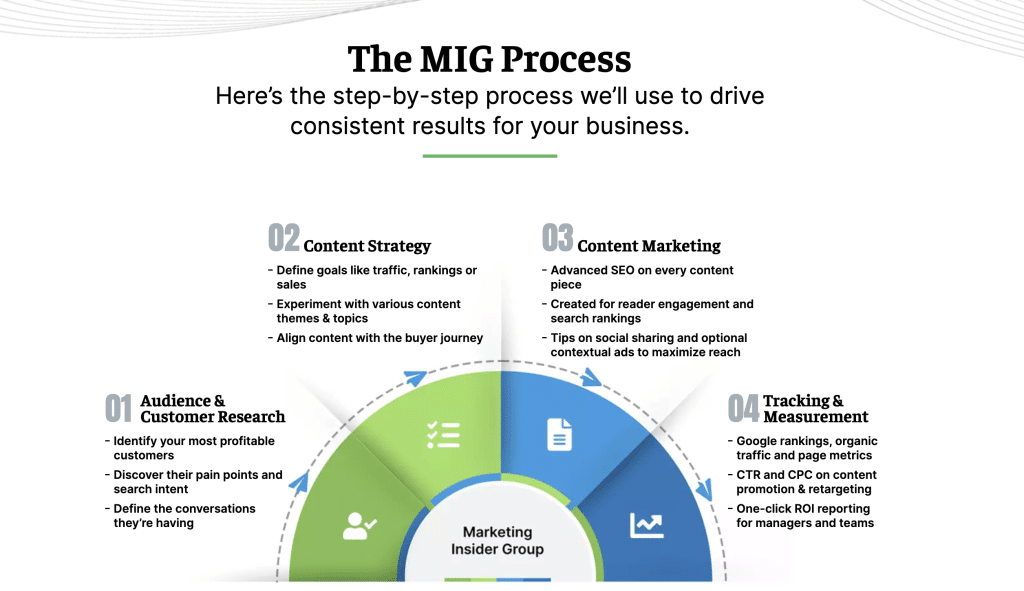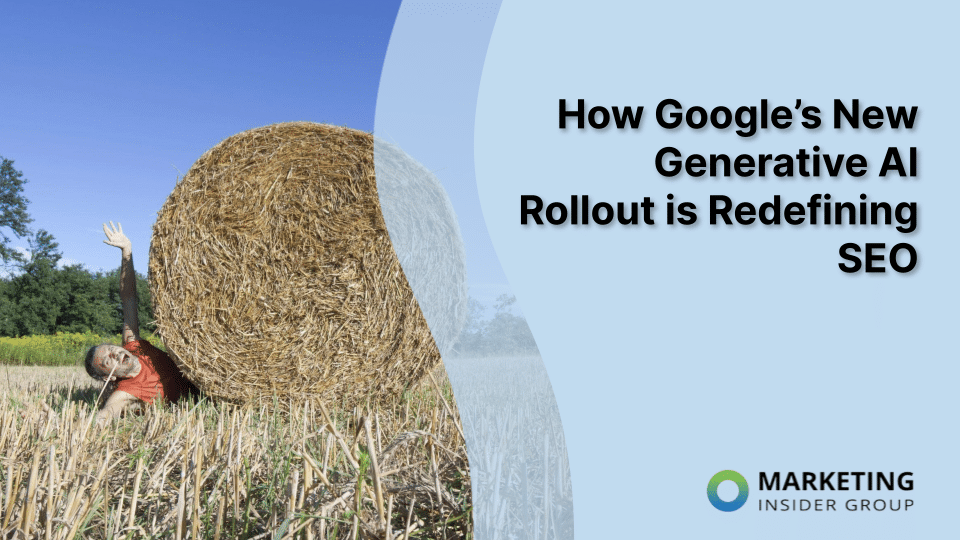How Google’s New Generative AI Rollout is Redefining SEO
Think SEO is all about keywords and backlinks? Think again. Google’s new Generative AI is here to shake things up, and if you’re not ready, you and your content might get left in the dust. This isn’t just another algorithm tweak—it’s a whole new ball game.
We’ve been tracking the evolution of search engines for years, but this latest rollout from Google is unlike anything we’ve seen before. Generative AI promises to revolutionize how we search, how we optimize, and ultimately, how we connect with our audience. Forget about piecing together data from countless sources; Google’s AI will do the heavy lifting, offering comprehensive overviews and enhanced search summaries at lightning speed.
So, what does this mean for your SEO strategy? Today, we’re answering all your questions about the implications of Google’s Generative AI and how you can stay ahead of the curve. Whether you’re a seasoned marketer or just getting started, understanding this shift is crucial. Let’s get into it.
Quick Takeaways
Google’s Generative AI, built on the Gemini model, predicts and generates coherent text, transforming how we create and optimize SEO content.
AI Overviews provide quick, integrated summaries of complex topics, boosting user satisfaction and engagement with easy-to-digest info.
With the AI-driven Search Generative Experience (SGE), traditional organic listings are getting pushed down the page, so adapting your SEO strategy to focus on high-quality, user-centric content is crucial.
A staggering 86.07% of enterprise SEOs are using AI for content optimization, keyword research, and content generation, leading to significant improvements in SEO performance.
Understanding Google’s Generative AI
Google’s Generative AI, introduced with the Gemini model, is set to transform the way we approach SEO. But what exactly is Generative AI, and how does it work?
Image Source
Generative AI builds on existing technologies like large language models (LLMs), which are trained on vast amounts of text to predict the next word in a sequence.
Think of it like this: If you start a sentence with “peanut butter and,” the model is likely to follow with “jelly” rather than something random like “shoelace”. This ability to predict and generate text allows the AI to create not just coherent sentences, but entire articles, summaries, and even multimedia content.
But let’s be real—AI isn’t foolproof. Remember when Google’s AI suggested that people should eat one rock per day? Yep, that actually happened.

Image Source
So, while AI can be an amazing tool, it’s not perfect. Use it wisely and always double-check the advice it spits out. You don’t want to end up with a mouthful of rocks.
Key Features of Google’s Generative AI
AI Overviews: This feature allows users to get quick summaries of complex topics, integrating key information and providing links for further reading. Google has reported that AI Overviews have been used billions of times through their Search Labs experiments, showing a significant increase in user satisfaction and engagement.
Enhanced Search Summaries: With AI-generated summaries, users can get concise overviews of web pages directly in search results, which include bullet points and additional details in a Q&A format. This feature is particularly useful for quickly understanding the main themes of an article.
Multi-step Reasoning and Planning: The Gemini model incorporates advanced capabilities like multi-step reasoning and planning, making it possible for users to ask more complex questions and receive well-structured responses. This feature transforms the way information is organized and retrieved, making searches more intuitive and efficient.
If you’re still on the fence about Google’s AI upgrades, consider this: Google’s AI Overviews are set to reach over a billion users by the end of the year, showcasing the massive reach and potential impact of this technology.
Immediate Impacts on SEO
If you’re still optimizing for the old algorithms, it’s time to wake up and smell the AI coffee. As marketers, we’re experiencing a fundamental shift in how search engines operate and how users interact with search results.
Changing Search Algorithms and Ranking Factors
Google’s new AI-driven search experience, known as the Search Generative Experience (SGE), is changing how search results are presented and ranked. SGE now appears in about 34.1% of search queries, providing pre-populated content and a “Show More” link.

Image Source
This pushes traditional organic search results down the page by roughly 1,630 pixels.
Enhanced User Experience
AI-generated summaries are a big deal. Google can now deliver quick answers and detailed overviews right in the search results, without needing users to click through multiple links.
People are loving it—higher satisfaction rates and increased use of search functions prove it. These AI Overviews pull together key information and provide links for more in-depth reading, making the user experience smoother and more efficient.
The Role of AI in Content Generation and Optimization
AI in search is also changing how content is created and optimized. According to a survey, 86.07% of enterprise SEOs have already integrated AI into their strategies, focusing on content optimization, keyword research, and content generation. And it’s paying off—83% of these companies have reported improved SEO performance since incorporating AI.
The implication here is clear: If you’re not using AI tools to boost your content creation and SEO strategies, you’re falling behind. Google’s Generative AI can automate repetitive SEO tasks, provide deeper insights, and help create more engaging, user-centric content.
Adapting Your SEO Strategy
Alright, let’s get down to business. How exactly do you adapt your strategy to Google’s Generative AI? Here are some practical steps to keep your SEO game strong.
Video Source
Focus on High-Quality, User-Centric Content
First things first: Quality matters more than ever. Google’s AI is designed to deliver the best possible answers to users, which means it favors content that is:
Comprehensive
Well-researched
User-friendly
Your content should address the needs and questions of your audience directly and effectively.
According to a recent survey, content optimized with AI saw significant improvements in engagement and search rankings. Make sure your content is detailed, informative, and structured to provide value right from the start.
Importance of Semantic Search and Natural Language Processing
Generative AI shifts the focus towards understanding the context and intent behind search queries. Semantic search and natural language processing (NLP) are at the heart of this shift. This means optimizing your content for topics, not just keywords.
A recent study shows that AI-enhanced SEO strategies significantly boost content performance by aligning more closely with how users naturally search for information. Use related terms and phrases to ensure your content answers the broader context of user queries.
Adjusting Keyword Strategies
Traditional keyword strategies aren’t dead, but they do need a facelift. Instead of stuffing your content with primary keywords, focus on long-tail keywords and related phrases that match the natural language of search queries. Tools like Google’s Keyword Planner or AI-based tools can help you identify these terms.

Image Source
Generative AI can help you uncover new keyword opportunities by analyzing large datasets and identifying patterns that may not be immediately obvious. This allows you to target niche queries that can drive more relevant traffic to your site.
Leveraging AI for Content Creation and Curation
Don’t just optimize for AI; use it to your advantage. AI tools can assist in content creation, from generating article ideas to drafting full outlines. They can also help with content curation, ensuring that your site is constantly updated with fresh, relevant information.
For instance, AI-driven tools like MarketMuse can analyze your existing content and suggest improvements to enhance SEO performance.
Continuous Monitoring and Adaptation
SEO isn’t a set-it-and-forget-it task, especially with the rapid growth of AI. Keep a close eye on your website’s performance using tools like Google Analytics and Search Console. Pay attention to metrics such as organic traffic, bounce rates, and user engagement to understand how well your content is performing.
Make data-driven decisions to refine your strategy. If certain pieces of content are performing well, analyze why and replicate those elements in other areas. Conversely, if something isn’t working, don’t be afraid to pivot and try a different approach.
The Future of SEO with Generative AI
As you know, Google’s Generative AI is already making waves in the world of SEO and content marketing. But what does the future hold? Let’s take a look at some predictions and emerging trends that marketers need to watch out for.
Predictions for Long-Term Changes in SEO Practices
The integration of AI into search engines is set to continue evolving, with even more sophisticated algorithms and capabilities on the horizon.
According to Gartner, by 2028, the adoption of AI in search engines could lead to a 50% drop in organic search traffic as users rely more on AI-generated answers. This means that SEO strategies will need to adapt to ensure visibility within AI-driven search results.
One major change we can expect is the increased importance of optimizing for AI-generated content snippets. Traditional ranking factors like backlinks and keyword density will still matter, but the ability to appear in AI-generated summaries and overviews will become crucial. This shift will require a focus on high-quality, comprehensive content that addresses user intent more effectively than ever before.
Emerging Trends Marketers Should Watch For
Several emerging trends are likely to shape the future of SEO in the context of Generative AI:
Voice Search Optimization: With the rise of voice-activated assistants like Google Assistant and Amazon Alexa, optimizing for voice search will become increasingly important. Voice search queries are often more conversational and longer than text searches, so content needs to be tailored accordingly.
Visual and Video Content: As AI becomes better at processing and understanding visual and video content, these formats will play a larger role in search results. Marketers should invest in high-quality images and videos that can be easily indexed and understood by AI.
User Experience (UX) and Accessibility: AI-driven search engines prioritize user experience and accessibility. Websites that are easy to navigate, mobile-friendly, and accessible to all users will rank higher. This means that technical SEO and UX design will become even more intertwined.
Evolving Content Formats: AI is capable of generating various content formats, including interactive and immersive experiences. Marketers should explore new ways to engage audiences through innovative content types, like virtual reality (VR) and augmented reality (AR) experiences.
Preparing for Continuous Evolution in AI and Search Technology
Staying ahead in the SEO game calls for continuous learning and adaptation. Here are some strategies to prepare for the ongoing evolution of AI and search technology:

Work with Experts: While DIY tools are great, working with expert marketers or marketing agencies can make all the difference. These pros know the ins and outs of AI tools for keyword research, content optimization, and performance analysis– and they know how to leverage them to your advantage. It’s not just cost and time efficient; it’s about getting the best quality strategy out there.
Stay Informed: Keep up with the latest developments in AI and SEO by following industry news, attending conferences, and participating in professional networks. Knowledge is power, and staying informed will help you anticipate and respond to changes.
Focus on Quality: Prioritize creating high-quality, user-centric content. This has always been a best practice in SEO, but it’s even more critical in the age of AI. Content that provides real value to users will be rewarded by AI algorithms.
Experiment and Innovate: Don’t be afraid to experiment with new technologies and content formats. Innovation is key to staying relevant and competitive. Embrace new tools and strategies to keep your SEO fresh and effective.
The future of SEO with Generative AI requires a blend of leveraging expert knowledge, staying informed, focusing on quality content, and embracing innovation. This way, marketers can ensure their strategies stay effective and their businesses continue to thrive.
Stay Ahead with Google Generative AI and SEO Today
Google’s Generative AI is reshaping SEO, and the smartest thing you can do is to roll with it. Partner up with marketing pros who know the ropes—they’ll use AI tools to supercharge your strategy. Keep your ear to the ground for the latest AI news, and never stop refining your content to keep it top-notch. Our best advice: Embrace the change and stay sharp.
Ready to dominate SEO with Google Generative AI? We’ve got you covered. Get started today by checking out our weekly blog content service, or schedule a free consultation to learn how Marketing Insider Group can help you stay ahead in the SEO game.
